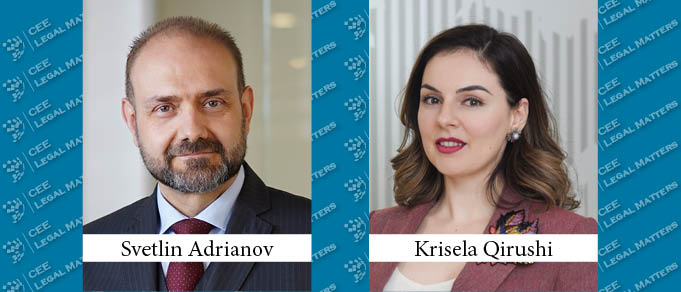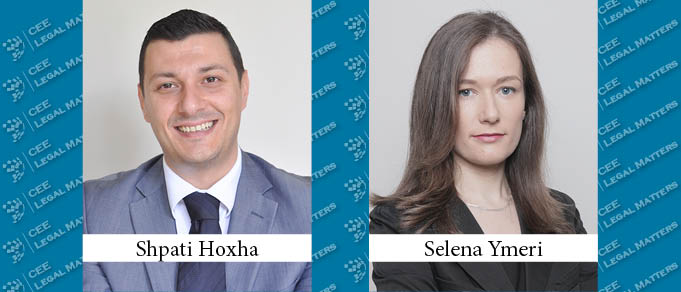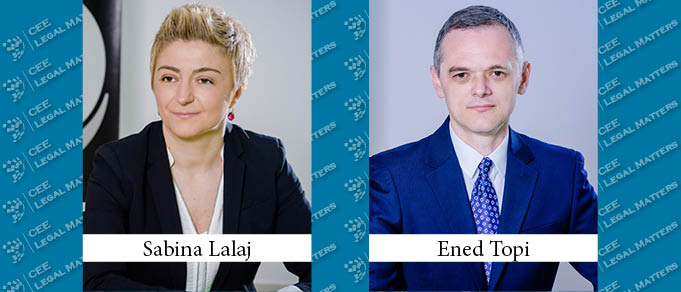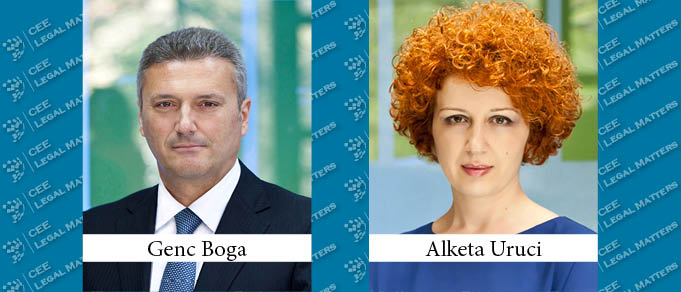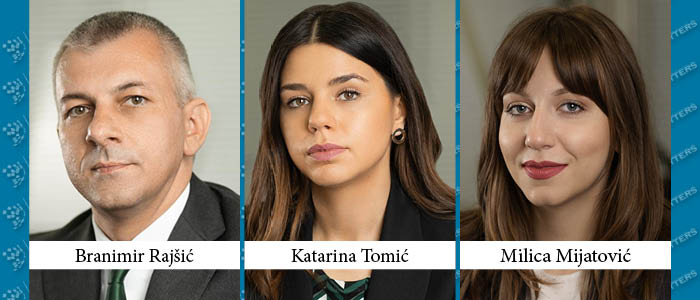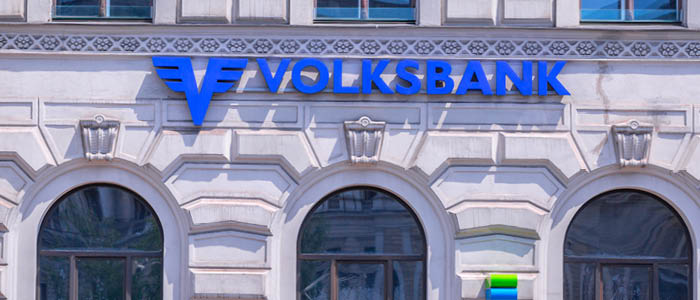Infrastructure, the Open Balkan initiative, and the ongoing judicial reform are the major topics in Albania, according to Tashko Pustina Partner Florian Hasko.
Real Estate Laws and Regulations in Albania
Contributed by Kalo & Associates.
Albania’s Antitrust Framework on the Way to EU Accession
As one of the next wave candidates for membership in the European Union, Albania went a long distance in the harmonization of its legal framework with the acquis communautaire in recent years. The most recent country progress report of the European Commission, issued as part of the 2020 Enlargement Package for the Western Balkans, recognized the legislative efforts of the country to align its legal framework to EU requirements and to enhance the country’s ability to assume the obligations of membership.Albania first ventured into the legal regulation of antitrust in 1995 by introducing a law On Competition, which dealt with antitrust, as well as with unfair competition and consumer protection matters. As a first attempt, it raised a lot of questions, but it also opened the topic of competition law in the country and served as a starting point in developing the relevant legal framework.
The Buzz in Albania: Interview with Aigest Milo of Kalo & Associates
In Albania, similarly to other Balkan countries, politics influence the administration of justice and business, according to Kalo & Associates Executive Partner Aigest Milo.
Albania: The Fiscal Regime of Oil & Gas Industry Sub-Contractors is Taking Shape
The fiscal regime of companies and contractors operating onshore in the exploration & production segment of the oil and gas industry in Albania was fundamentally changed by Law no. 153/2020 On the Fiscal Regime in the Hydrocarbon Sector (the Hydrocarbon Fiscal Law or HFL), that came into effect on February 2, 2021.
New Law Transforms the Petroleum Sector’s Fiscal Landscape in Albania
With oil reserves constantly estimated between 150 and 200 million barrels, Albania has been widely regarded as one of the richest in hydrocarbons European countries, whereas Patos-Marinza oil area is recognized as the largest onshore oil field in continental Europe. Therefore, it was only normal for the industry to be quickly regulated upon the transition of Albania towards democracy in the early 1990s, by adopting industry specific legislation. Law 7746/1993 and Law 7811/1994, dealing with the granting of exploration and exploitation rights and the taxation of the activities, respectively.
Albania: Financial Industry – A Revolution On Its Way
“Today, what we are doing, is modernizing the financial services industry, tearing down those antiquated laws, and granting banks significant new authority.” President Clinton’s quote is quite relevant nowadays in Albania, where a major overhaul of the financial system’s legal architecture is being implemented. Indeed, in just three weeks, the Albanian Parliament enacted four very important pieces of legislation: the Law on Payment Services, the Law on Capital Markets, the Law on Collective Investment Undertakings, and the Law on Financial Markets Based on Distributed Ledgers Technology.
Merger Control in Albania
The control of merger transactions was first introduced in Albania in 1995. This law, however, provided only rudimentary guidance, and merger control really took off only after 2003, following the approval of Law no. 9121, “On Competition Protection” (the “Competition Law”), which established an independent competition authority – the Albanian Competition Authority (the ACA) – and provided for procedures that were aligned with EU standards. The Competition Law has been amended a number of times to further approximate its provisions with the EU acquis. The ACA has also issued regulations and instructions for the implementation of the merger control regime.
Registering Beneficial Owners in Albania
On July 07, 2020, the Albanian Parliament approved Law no. 112/2020, dated 29.07.2020 “On the register of beneficial owners.”
Guest Editorial: Navigating the Crisis in the Western Balkans
The COVID-19 pandemic hit the Western Balkans right during a period of accelerating economic activity and a promising economic outlook for 2020. The rapid spread of the virus forced the governments of the Western Balkans countries to introduce protective measures, lockdowns, and temporary business shutdowns. These restrictions had a devastating direct economic impact on a wide range of sectors – particularly the hospitality and transport industries – and the measures had many indirect side effects that significantly decreased economic activity.
Albania: Towards Renewable Energy
In 2015, Albania harmonized its legislation with EU Directive 2009/72/EC through law no. 43/2015 “On Electrical Energy Sector” (the “Energy Law”).
The Big Deal: Interview with CMS’s Eva Talmacsi About OTP/Societe Generale Acquisitions
Over the past few years CMS advised the OTP Bank Group on an extensive series of acquisitions across Bulgaria, Moldova, and former Yugoslavia. This series of separate deals was shortlisted for CEE Legal Matters’ CEE Deal of the Year in each of the countries involved, actually winning the 2018 Deal of the Year for Bulgaria and the 2019 Deal of the Year Award for Montenegro. We reached out to Eva Talmacsi, who led CMS’s multi-jurisdictional team, to learn more about the firm’s impressive work on OTP’s behalf.
Electric Energy in Albania
During the last decade, Albania has undertaken several initiatives to liberalize the electric energy sector and increase local generation capacities. Such measures have created a lively market, especially in the renewal energy segment.
The Belated Boom: Albania’s Troubled Road Towards EU Accession
After almost a century of reclusion, Albania has achieved formal candidate status to join the 28 member states in the European Union. Is the time finally right?
Guest Editorial: Mismatched Expectations (2)
“Where do you see yourself in 5 or 10 years?” the Cravath partner in New York asked after fifteen or so minutes, thereby signaling that the interview was coming to an end, expecting to hear the standard reply emphasizing the applicant’s desire to work hard if offered the position. “Home,” I replied. “In Albania.”
Guest Editorial: Mismatched Expectations
“Where do you see yourself in 5 or 10 years?” the Cravath partner in New York asked after fifteen or so minutes, thereby signaling that the interview was coming to an end, expecting to hear the standard reply emphasizing the applicant’s desire to work hard if offered the position. “Home,” I replied. “In Albania.”
New Draft “On the Fiscal Regime for Petroleum Operations” Law
The fiscal aspects of the hydrocarbon sector in Albania will be soon governed by a new law. The new draft “On the Fiscal Regime for Petroleum Operations” law (the “New Draft Law”) was initially published in the Electronic Register of Public Announcement and Consultations on April 4, 2019 and has been circulated for comment among stakeholders, chambers of commerce, and experts’ associations in Albania.
A Night of Celebration at CEE Deal of the Year Awards Banquet in Prague
The winners of the 2017 CEE Deal of the Year Awards were announced at the first ever CEE Legal Matters Deal of the Year Awards Banquet last night in Prague. The biggest smiles in the joyous and music-filled celebration of CEE lawyering, perhaps, were on the faces of Partners from Avellum and Sayenko Kharenko, which, along with White & Case and Latham & Watkins, won the award both for Ukrainian Deal of the Year and CEE Deal of the Year for their work on the 2017 Ukraine Eurobond Issue (a story initially reported by CEE Legal Matters on October 2, 2017).






